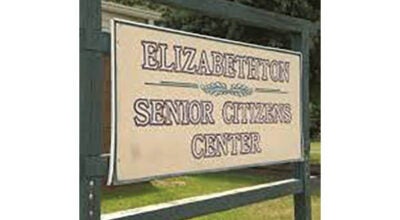Driving safely is a must for officers
Published 8:51 am Monday, May 12, 2014
Law enforcement officers spend much of their work day in their vehicles and, unlike ordinary  drivers, they are expected to drive safely at a higher rate of speed with their attention divided between traffic and their police radio while they respond to emergency calls.
drivers, they are expected to drive safely at a higher rate of speed with their attention divided between traffic and their police radio while they respond to emergency calls.
“Distractions are a real big thing because so much is going on in that car,” said Carter County Sheriff’s Department Capt. Rocky Croy, adding that while officers are responding to the scene of an emergency they are receiving information from 911 about the nature of the call, any subjects involved and other pertinent information they need all while trying to safely navigate traffic and road hazards.
With all the things officers are faced with as they patrol in their vehicles, Emergency Vehicle Operation Course (EVOC) training becomes an essential part of training for law enforcement personnel, said Croy, who is a certified EVOC instructor.
Each year, members of the Carter County Sheriff’s Department and Elizabethton Police Department undergo EVOC training as part of their annual in-service.
Under state requirements, officers are required to undergo two hours of EVOC training each year, and training can be in a classroom only setting. Croy said the class he instructs exceeds the minimum requirements of the state.
“We do two hours in the classroom and then we come out and do about three hours on the course,” he said. “Practical experience is always better.”
The course which Croy designed for officers to complete this year offered a different challenge than some EVOC courses.
“This is not really a speed course, this is a technical course,” Croy said. “The average is that about 75 percent of our accidents involve backing so we included that. We want them to get used to backing up and twisting. Almost everything they do forward we then have them do backward.”
Croy said he wants to get the officers away from using their mirrors to back up and get them into the habit of turning and looking over their shoulder while driving in reverse. Croy said looking over the shoulder provides more safety while backing up because the mirrors do not always allow you to see obstacles behind the vehicle.
The biggest focus of the course, Croy said, is on driving safely.
“We show them how to get to the scene. If you can’t arrive safely you can’t help anyone,” Croy said.
The course designed by Croy features things like 90 degree turns, lane change obstacles and a serpentine section.
While the course was not designed for speed, officers were timed as they completed the course. As part of the training officers had to navigate the course at least twice and then the times were compared.
“What we are looking for is to see if they improved,” Croy said, adding the majority of the officers did improve their time during their second run.
Among the things covered in the classroom portion of the course are liability, the different types of driving, use of lights and sirens, distractions, vehicle inspections, department policies on vehicle pursuits, and Peace Officer Standards and Training Commission rules on emergency vehicle operation.
One of the other major topics covered, Croy said, is the Vanessa K. Free Act of 2005. Vanessa K. Free was a young woman who died in November of 2002 following a motor vehicle accident in Chattanooga. The vehicle which Free was a passenger of was traveling through an intersection when it was struck broadside by a police vehicle driven by an officer who was responding to a call. At the time of the crash the officer had the vehicle’s emergency lights on but was not using the vehicle’s siren.
That accident led to changes in the state’s training requirements and also the rules on emergency vehicle operations.
Officers from the CCSD, EPD and the Watauga Police Department all completed their required training this year on the course designed by Croy, with the most recent class finishing last week.
Croy said he worked with the other departments for the EVOC course because being able to provide this course locally helps save all of the departments time and money.
“Without this course officers would have to drive to Greeneville to receive their EVOC training,” Croy said. He said he was able to offer the course in Carter County thanks to Borla Performance Industries which provided space on their property for the course to be set up and Summers-Tayor, which provided the traffic cones used in the course layout.
“They (Borla) are very pro law enforcement,” Croy said. “They are very helpful in letting us use this place.”




